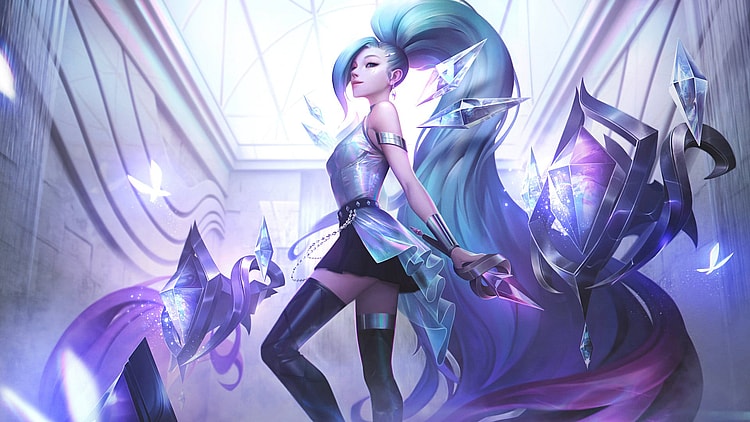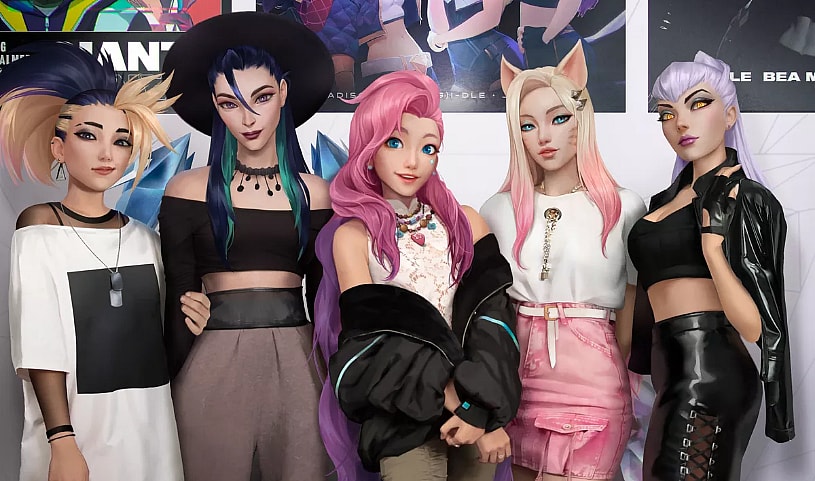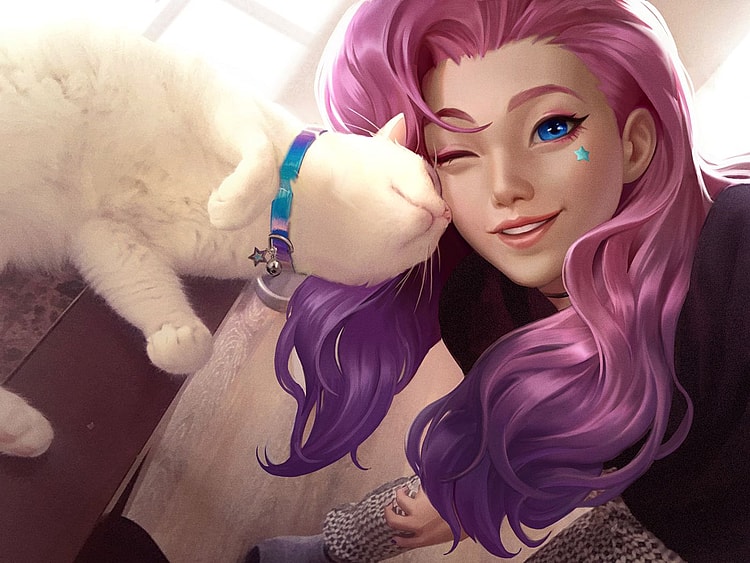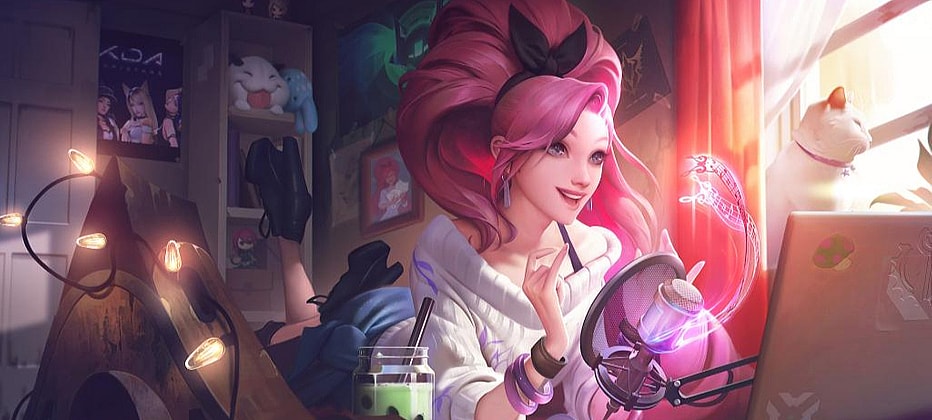Vice Takes Issue With League of Legends’ Use of Seraphine as Virtual Personality: “She Has No Interest In The Political Reality That Exists Around Her”

Vice has taken issue with League of Legends’ use of Seraphine as a virtual pop star and social media personality because she does not speak to contemporary socio-political topics.

Related: Vice Labels Critics of Proposed Warhammer 40k Direction As “Alt-Right Minority”
Seraphine was first introduced to the lore of League of Legends earlier this year, when Riot Games introduced her as the game’s latest champion, utilizing various vocal-related abilities in order to serve as a viable utility mage for any respective team.
Following her debut, Seraphine was soon introduced as a member of K/DA, a K-Pop group that consists entirely of League of Legends characters, and was given social media accounts to interact with fans, akin to the recent trend of Virtual YouTubers.

In an article headlined “League of Legends’ Fake Anime Pop Star Is Sad Tweeting About Genocide,” Vice author Gita Jackson discussed two particular aspects of the ranged enchanter’s real-world persona.
First, Jackson voiced her grievance with how, according to her own personal assessment, “at least in the main continuity of League of Legends, Seraphine directly benefits from a pretty recent genocide.”

The ‘genocide’ mentioned by Jackson refers to the discovery of the Brackerns by Shuriman and Piltovan thieves, who proceeded to harvest the energy of the crystalline scorpion race’s ‘namestones’ in order to power their ‘Hextech’ mechanical technology.
It should be noted that this event took place years before Seraphine was even born, and though the young woman was born in Piltover and communicates with a Brackern consciousness trapped within a crystal, she herself has never actively engaged in any genocidal actions against the Brackern.

Despite her recognition of the fact that “the Seraphine that exists on the official Twitter, Instagram, and Soundcloud accounts is not the same Seraphine that, in her own words, sings the elegy of the Brackern that power her city,” Jackson found the use of a character even remotely related to the fictional event to be inappropriate, even stating that the public Seraphine’s existence as an alternate version “doesn’t make it any less weird that Riot Games is adding this character to their already extant K-pop group, K/DA.”

Related: Alice Livanart Responds to EuroCosplay’s Ban of Her “Racist” League of Legends Costume
Jackson’s second point of contention is the marketing attempt by Riot “to portray her as the most relatable girl on the planet, with a dash of the melodrama from a tween soap opera like Instant Star or Gossip Girl’s Jenny Humphrey storylines,” which she found “is beyond perverse—it’s honestly offensive.”
“Seraphine’s tweets about her issues aren’t meant as an opportunity for other young women to be open and vulnerable about their issues,” explained Jackson. “It’s a naked attempt to get League of Legends fans to further invest in their parasocial relationship with Seraphine.”

Ironically, though she summarizes this marketing experiment as “Seraphine isn’t interested in fostering the growth of other young people—it’s an emotional feedback loop directing you to more Seraphine content,” Jackson also puts forth a recent video in which famous Mattel-character Barbie discusses racism from a critical race theory angle as an example of a character “using her relatability and aspirational nature to create a space of safety, where young girls can process complex feelings.”
By Jackson’s own admission, her criticism of the Seraphine personality is based on her own inability to separate not only two separate versions of characters, but also entertainment from activism, as she asserts that “the tension [Seraphine] feels because of [the genocide] is an indelible part of that character no matter the universe they exist in.”
She argues that “It’s not unreasonable to think that a young white woman would feel some tension taking up space during a time of extreme political upheaval, but there’s no hint of that in her feed.”
“Seraphine has no interest in the political reality that exists around her, despite all the great lengths that Riot takes to draw her into our physical world,” Jackson concluded. “She’s just interested in performing at Worlds for all the League of Legends fans that are definitely her very special, best friends.”

Related: Twitch Streamer Pokimane Issues Apology For ‘Attack Helicopter Gender’ Joke
Are parasocial relationships a growing problem in society? Absolutely, but this phenomena is not exclusive to Seraphine, as even real-world personalities such as Twitch streamer Pokimane, and actor Chris Pratt have to deal with this troubling aspect of their personal persona, regularly facing attacks from fans who believe they have been betrayed by the celebrity on a personal level.
Furthermore, Riot and Seraphine never claimed that they intended to center the character as a social justice icon. Her creation as a playable hero, and subsequent promotion to virtual pop star and internet personality, was done solely to entertain players and market the popular MOBA to even more audiences.

Unfortunately for Jackson, it does not appear that Seraphine will be retiring from the limelight anytime soon, as K/DA just released a new preview for their upcoming music video for their song ‘More.’
Thank you all for taking part in the past month of #KDAMORE. Now, experience this first look of the upcoming music video: "MORE."
Pre-save "MORE" now: https://t.co/MgRQs8QJ2X pic.twitter.com/J67Y4R5XAl
— K/DA (@KDA_MUSIC) October 23, 2020
